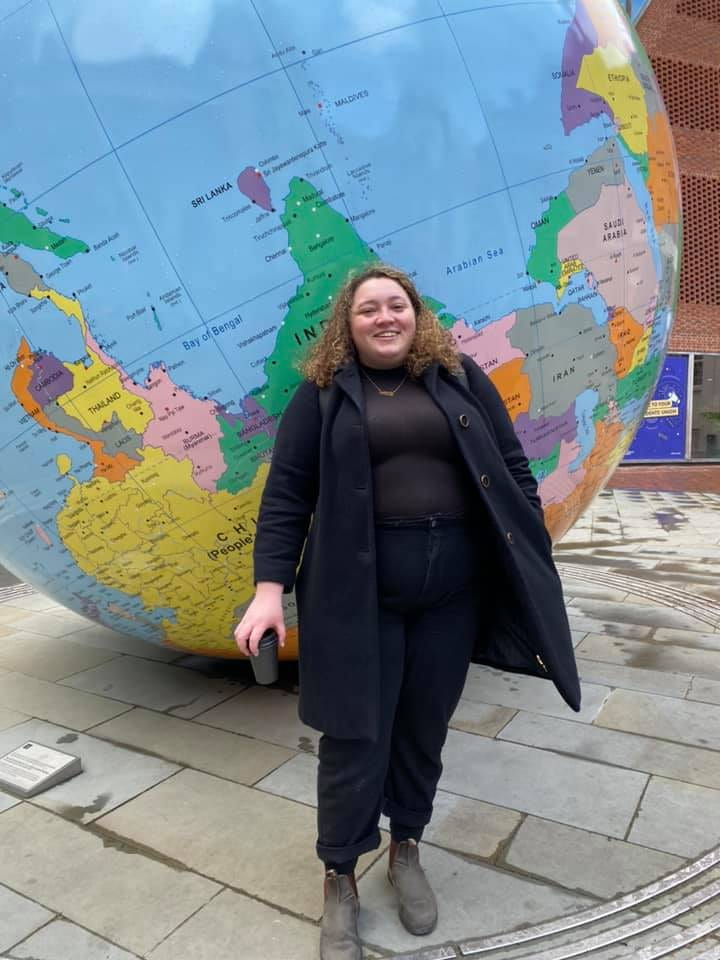
International affairs and international development graduate Emma Anderson ’20 sees money through a different lens than others.
A longtime champion of gender equity, women’s rights and domestic and sexual violence prevention, Ms. Anderson believes allocating and mobilizing financial resources can be a means to redistributive justice. That’s exactly how she approaches her current role as a grants and programs officer for the International Rescue Committee (IRC), focused primarily on Somalia.
“We’re getting money from governments and big organizations that have historically failed women and other marginalized populations, and we’re directly giving women and local partners that money and those funds to do what they need in order to better their own lives,” Ms. Anderson said.
Working with the IRC since August, Ms. Anderson is particularly drawn to the organization’s commitment to implementation. If it gets a grant or contract, Ms. Anderson said, it doesn’t give the money to a think tank or consulting firm. Instead, the IRC invests in schools, hospitals, domestic violence shelters and water wells, among other things, all while hiring a local workforce.
That’s the type of work that most motivates Ms. Anderson, who further cemented her passion for helping others at GW. She was involved in the Women’s Leadership Program on campus, in addition to Students Against Sexual Assault.
“Those were such a critical part of my GW experience,” said Ms. Anderson, who also co-hosted the Elliott School podcast, Foreign Affairs Inbox, as a student. “I’m really proud to be an alum.”
She also appreciated the opportunity to study abroad at GW, doing so both in South Africa and Jordan. Ms. Anderson, who grew up in Nyack, New York, said those cultural immersions were eye opening, so much so that she’ll set up shop abroad again in January. She will be stationed in Nairobi, Kenya working for the IRC.
Ms. Anderson always had a drive to make a difference, and GW’s Elliott School of International Affairs was a perfect place to carve out a path where she feels fit to do just that.
“GW is really what you make of it,” Ms. Anderson said. “You can come out of it with such a wealth of experiences and knowledge if you really want to. You get it out of it what you put into it.”
And thanks to Ms. Anderson’s work with the IRC, others in need across the globe are reaping the benefits of what she put into GW.
